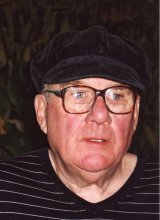
|
|
||||
|
Today is February 16th , 2026
FRAUD ALERT
QUEBECRECOMMENDATIONBooks |
CORRUPTION"Because sentence against a bad work has not been executed speedily, that is why the heart of the sons of men has become fully set in them to do bad," observed King Solomon: Ecclesiastes 8:11. "A mere lover of silver will not be satisfied with silver," observed Solomon, "neither any lover of wealth with income." (Ecclesiastes 5:10) Granted, greed may be good for making money, but it invariably winks at corruption and illegality. ------------------------------------------------------- Sunday, April 6, 2008 The following is one good example of corruption which in the long run, effects every citizens of this world. Canada is far from being a clean and honourable country. In fact per capita, Canada has more crimes than the USA and many criminals are never charged for the crimes they committed. The following story demonstrates how Canada has no regards for procedures and that it has indeed turned into a police state. NORTHERN EXPOSURE Cop who reported 'torture' escalates case to Congress State Department says situation sparked new policy for Canada By Bob Unruh 2008 WorldNetDaily Canada operating like a third world country Canada has agreed to implement new policies and procedures to protect U.S. citizens who may be jailed there, according to the U.S. State Department.The move, however, falls far short of the corrections sought by a former U.S. policeman who spent four years in jail there without having access to U.S. consular services, and he says he is planning to meet with a member of Congress about the dispute. A spokesman for the State Department told WND yesterday that there have been discussions regarding the claims raised by Scott Loper. "We are aware Mr. Loper was not allowed access to American consular officials while arrested and detained in Canada. In our discussions with Canadian officials they have acknowledged that oversight," a spokesman for the department said. "Since then they have put into place policies [including] prompt notification and access whenever Americans are arrested. We believe our consultations with Canadian officials will help Americans get adequate notice and access when they're arrested," he continued. The specific case involving Loper was raised, but the official could not provide further details on anything stemming from that issue. WND has reported previously not only on Loper's case, but also on confirmation from the State Department it was opening an investigation into the disappearance of Loper's son. Loper, a former New Jersey police officer, has described stumbling upon an alleged police-run drug ring in Canada, then his sudden jailing before he could contact the Royal Canadian Mounted Police, that nation's federal police department, and the abrupt disappearance of his wife and son, Edward. Officials from the Canadian Department of Foreign Affairs have continue to decline to respond to WND inquiries about the status of an investigation into the situation. The formal hunt for Loper's son, Eddy, now 11, was confirmed in a letter from Barbara J. Greig, with the International Parental Child Abduction Unit in the State Department. "I am writing in response to my telephone conversation with you of February 22, 2008, regarding your child, Edward Loper, who may still be alive in Canada. I am the officer responsible for cases in Canada for the International Parental Child Abduction Unit of the Office Children's Issues. International parental child abduction is an issue of great concern to the Department of State. We place the highest priority on children who have been victimized by parental or State abduction. I have already opened a case in the name of Edward Loper that will remain open until you gain access to him or all possible efforts have been exhausted," she said. While the hunt for his son is good, and policy changes might help, the status of his complaint within the State Department remains unsatisfactory to Loper, and he confirmed to WND he has a meeting scheduled within the next week with a leader in Congress to discuss further the situation. Details of that scheduled meeting were not being released immediately. He has called on the U.S. government to pursue a complaint internationally, because of the treaty violations Canada's failure to notify the U.S. included. Loper's civil rights lawyer, Scott Shields of Media, Pa., told WND his client has few options left if the State Department refuses to pursue his case. "Otherwise he'd have to go back into Canada and hire Canadian counsel and sue them there," he said. His client's case is a "cry out to the State Department to demand some accountability for [Canada] not notifying our government he was in custody to begin with. They've admitted they didn't notify our government and still don't want to address the issues, he said. "Our government can file a claim through the International Court of Justice. We [as individuals] cannot," Shields said. "But for reasons, not told to me, other than apparently our federal current administration perhaps doesn't want to upset the Canadian government, they're not pushing it," he said. "I don't even know how to classify the inaction on the part of our government now," said Shields. Loper's insistence on pursuing the situation through international courts assigned to handle treaty violations comes because the Bush administration submitted a brief to the U.S. Supreme Court arguing to overturn the death penalty of Jose Medellin. He confessed in 1993 to participating in the rape and murder of two Houston teenagers. Jennifer Ertman and Elizabeth Pena were sodomized and strangled with their shoe laces, and Medellin bragged about keeping one girl's Mickey Mouse watch as a souvenir of the crime. But he sought to overturn the conviction claiming he had not been provided access to consular services. The U.S. Supreme Court announced its decision recently that the state of Texas had handled the prosecution properly, but the White House said that would make no difference in its pursuit of compliance with international treaties. White House spokeswoman Dana Perino said the president's goal was the assure that compliance. "The solicitor general in this case argued on behalf of the United States that the president has the authority to compel a state to comply with provisions of a legally ratified treaty, in this case, one between the United States and a foreign power, regarding a provision of the International Court of Justice. In their decision the Supreme Court disagreed. They recognized that there is an international obligation to comply with treaties, but that the president of the United States does not have the legal authority to compel a state to take that action," she said. Loper told WND he was returned to the U.S. in 2004 after a four-year prison term for "domestic" charges he believes were trumped up to silence him after he discovered the alleged cop-run drug ring. Loper, who had moved to Canada so his wife at the time could be closer to her family, said the whole situation was unsettling from the beginning. He was divorced from his original Canadian wife, then married his second wife, Carolyn. While moving into a townhome, they were welcomed by a beer-drinking crowd in the next unit who identified themselves as police officers, one of whom later warned him that a neighbor on the other side was "under surveillance" as a possible drug dealer. Loper's experience as a New Jersey officer alerted him, and he subsequently watched officers repeatedly sneak into the next-door unit. He bought some microphones and a tape recorder and installed the mikes so they would monitor what was going on, discovering that police officers in the Durham region allegedly were busting drug dealers being identified by his neighbor, then bringing the drugs to him for sale, he said. Before he could take his evidence to the Royal Canadian Mounted Police, Canada's federal police unit, he was busted by local police on what he describes as trumped-up charges, taken to a mental health facility and detained, he said. While he was confined, his townhome was ransacked, his tapes confiscated and his wife and young son disappeared. He recalls a last telephone call from Carolyn. "I love you but they'll take Eddy away!" were the last words he heard her say, Loper told WND. Released from the mental facility after a few days, he found his wife and son gone, and when he tried to find them, found himself the subject of a restraining order. He tried to express his love for his wife and son in a letter to a friend, and authorities determined that was an attempt at an "indirect communication" and he was sentenced to prison for four years. There, he said, officers repeatedly tried to get him to admit that he was making up the claims about the police officers' drug connections. "There was a hot water radiator. They would spray me with that to get me to recant my story, to get me to stop saying it," he said. He said he's been told stories of his wife now being in a witness relocation program, or considers the real possibility that she may have been part of the conspiracy to get rid of him in order to move forward with another man, possibly a police officer. Back in the United States, he's remarried and pursuing another line of work. But he still is demanding justice for what he experienced. "I was arrested and locked in a filthy cockroach infested solitary confinement with no light, no heat. I was starved, beaten, tortured with a scalding shower tapped off a radiator pipe while in a locked cage, and put into a steel coffin for weeks at a time. "On numerous occasions as I asked and demanded to see a representative of the American government. I was laughed at by Canadian prison authorities," he said. "This is a clear violation of my Hague Rights and a violation of treaties between Canada and the United States going back over 40 years. It is also a violation of international law," he said. On a Restore the Republic website, a commentator called Loper's situation, "absolutely insane." "Kirralin23," a forum participant, said the situation is appalling. "For the government to refuse to protect his rights as a U.S. citizen is equivalent to you or [me] not seeking prosecution of our best friend for raping our child. How could that individual remain our friend? How can our government remain cozy with a foreign goverment (sic) which has so viciously and unjustly attacked one of our citizens." From "Taquoshi," came: "Canada is becoming more and more of a police state, from the seizing of firearms, to the enforcement of 'hate crime' legislation, 'universal' health care and now to the possible false imprisonment of a U.S. citizen without notifying the embassy and possibly the concealment of his wife and son. Oh, yeah, we really want to join together with them as part of a North American Union. Right!" PUBLIC OFFICIALS and THE RADIATION OF AMERICA MALFEASANCE AND FRAUD IN THE JUSTICE AND COURT SYSTEM |
LEGAL ABUSE SYNDROME |
||
Justice is a conscience, not a personal conscience but conscience of the whole of the humanity.
Those who clearly recognize the voice of their own conscience usually recognize also the voice of Justice.
Alexander Solzhenitsyn

